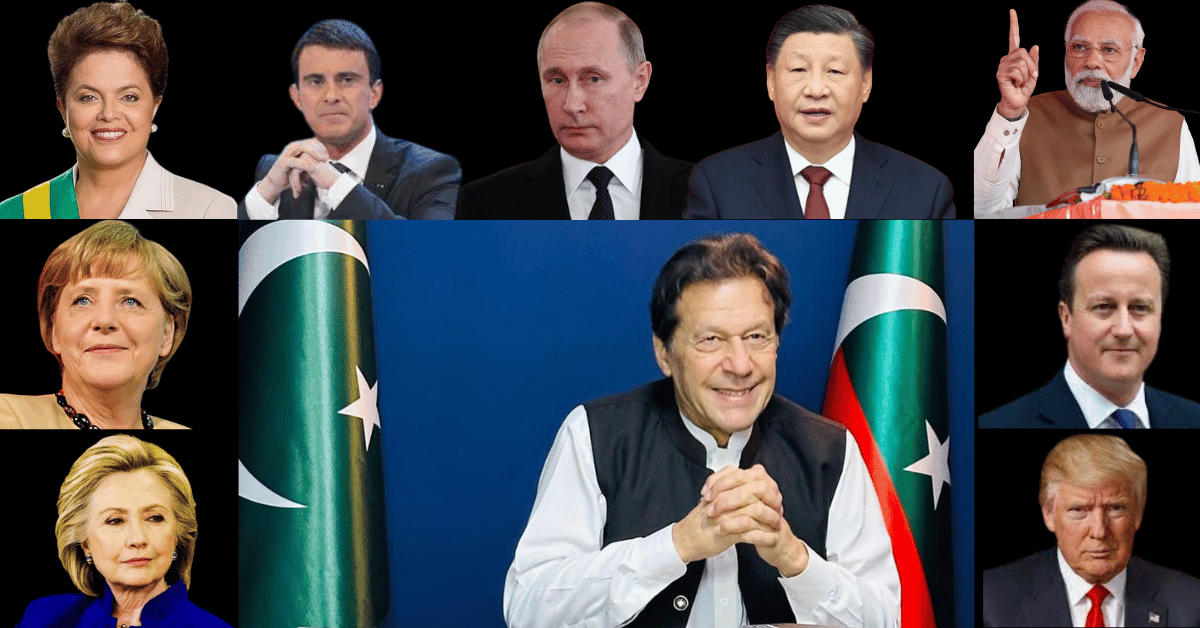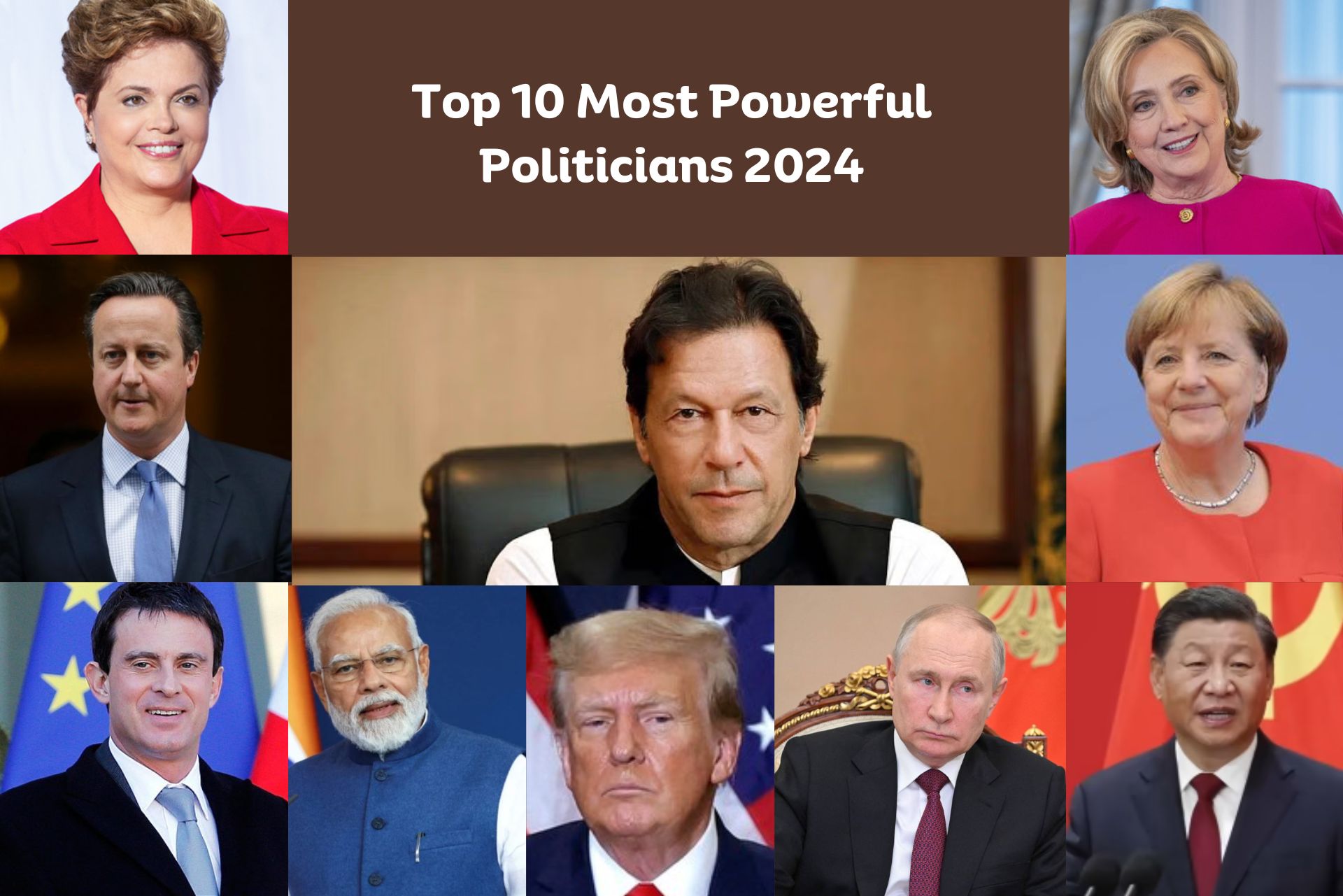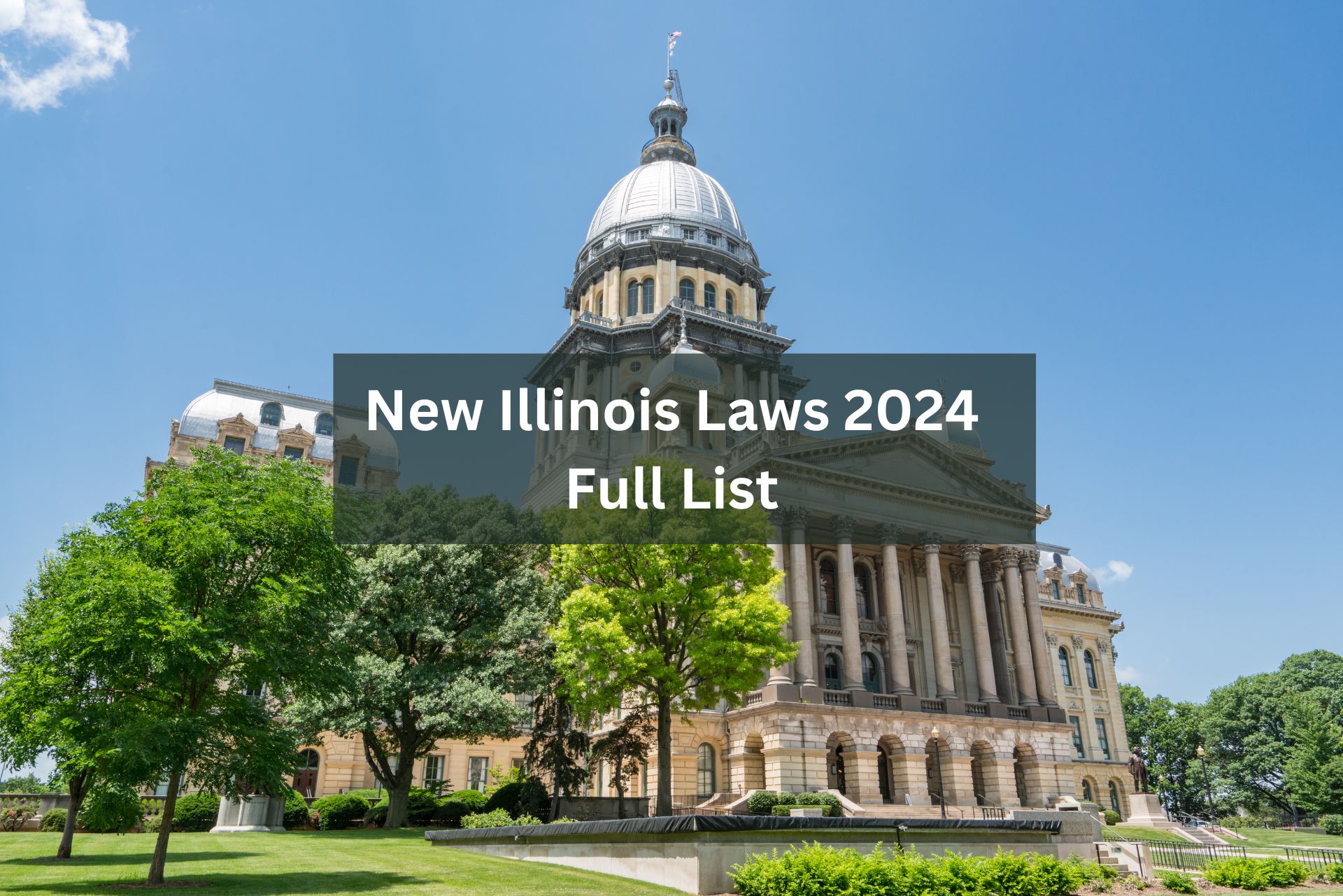In today’s dynamic global landscape, the role of the best leaders is crucial in shaping the destiny of nations and influencing the course of history. The world has witnessed an array of political figures, each leaving a unique imprint on their countries and the world at large. From dictators to democrats, from conservatives to liberals, these leaders play a crucial role in driving social progress, economic growth, technological advancements, and environmental initiatives. In this article, we will explore the top 10 best leaders of the world in 2023, individuals who have demonstrated exceptional leadership qualities and have been recognized as powerful figures on the international stage. These leaders have made significant contributions to their nations’ development and have garnered support from their citizens as well as global admiration. Let’s explore the remarkable journeys and accomplishments of these influential leaders.
- 10. Dilma Rousseff – Former President of Brazil:
- 9. Hillary Clinton –Ex-USA Secretary of State:
- 8. Angela Merkel – Former Chancellor of Germany:
- 7. Narendra Modi – Prime Minister of India:
- 6. Manuel Valls – Former Prime Minister of France:
- 5. David Cameron –Ex-Prime Minister of the United Kingdom:
- 4. Donald Trump – Former President of the United States:
- 3. Vladimir Putin – President of Russia:
- 2. Xi Jinping – President of China:
- 1. Imran Khan –Ex-Prime Minister of Pakistan:
- FAQ
- 1. Who are the top 10 best leaders of the world in 2023?
- 2. What qualities make these the best leaders of the world stand out?
- 3. How have best leaders of the world impacted their respective countries?
- 4. What achievements have these best leaders of the world accomplished?
- 5. How have these best leaders of the world handled global challenges?
- 6. Are there any notable initiatives or projects led by these best leaders of the world?
- 7. How have these best leaders of the world been recognized internationally?
- 8. What are the future prospects of these best leaders of the world?
- 9. How can I learn more about each leader’s policies and achievements?
10. Dilma Rousseff – Former President of Brazil:
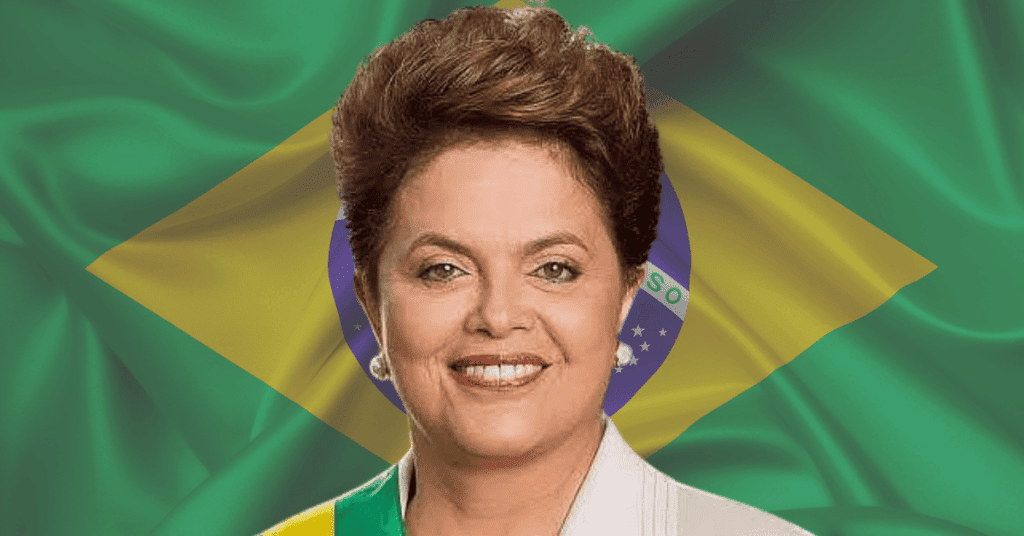
During her tenure as the 36th President of Brazil from 2011 to 2016, Dilma Rousseff’s leadership was marked by a strong emphasis on social inclusion and economic development. As the first female president in Brazil’s history, she strived to address social inequalities and improve the lives of marginalized communities. Rousseff’s commitment to social welfare programs aimed to uplift the less privileged, providing them with access to education, healthcare, and housing opportunities.
Under her administration, Brazil witnessed significant investments in infrastructure development, with a focus on modernizing transportation networks and improving public services. Her efforts aimed to create jobs, boost economic growth, and increase access to essential services across the country. Despite facing numerous challenges and eventual impeachment in 2016 due to charges of fiscal misconduct, Rousseff’s legacy endures through the positive impact of her social welfare initiatives and infrastructure projects, which have left a lasting mark on Brazilian society. Her dedication to social progress and economic advancement has solidified her position as a prominent leader in Brazil’s history, inspiring future generations and fostering discussions about gender equality in politics.
9. Hillary Clinton –Ex-USA Secretary of State:

During her tenure as the “U.S. Secretary of State between 2009 and 2013,” Hillary Clinton played a pivotal part in influencing America’s foreign policy and nurturing diplomatic ties with other nations. She traveled extensively, engaging in high-level diplomacy with world leaders and representing the United States on the global stage. One of her notable achievements was the “Hillary Doctrine,” which emphasized the importance of gender equality and women’s rights as vital components of U.S. foreign policy. Clinton strongly believed that when women are empowered, societies become more stable, peaceful, and prosperous.
Furthermore, Clinton’s efforts in promoting internet freedom and advocating for the rights of oppressed groups worldwide gained significant attention. She delivered a historic speech in 2010, highlighting the importance of free and open internet and condemning cyber-censorship by repressive regimes. Her dedication to human rights, democracy, and the rule of law earned her respect from many human rights activists and advocates around the world. However, Clinton’s time as Secretary of State was not without controversy, particularly regarding her handling of the 2012 Benghazi attack in Libya, which sparked political debates and investigations.
8. Angela Merkel – Former Chancellor of Germany:
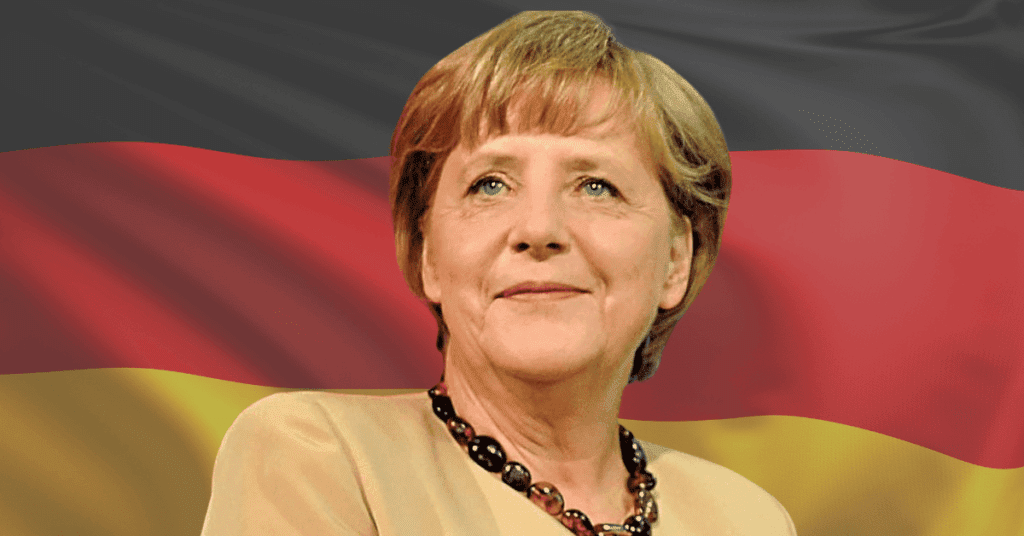
During her tenure as “Chancellor of Germany from 2005 to 2021,” Angela Merkel made significant contributions to various aspects of governance, both domestically and internationally. One of her most notable achievements was her commitment to promoting international cooperation and strengthening the European Union (EU). Merkel was a strong proponent of multilateralism and actively engaged in diplomatic efforts to foster dialogue and cooperation between nations, particularly during times of crisis. Her leadership was crucial in steering through the European debt crisis and the refugee crisis, where she stressed the significance of unity and cooperation among European Union member states.
Moreover, Angela Merkel was recognized for her dedication to environmental sustainability. She was a prominent advocate for climate action and played a key role in negotiating international agreements on climate change, such as the Paris Agreement. Under her leadership, Germany implemented various policies to transition towards renewable energy sources and reduce carbon emissions, positioning the country as a leader in the global fight against climate change. Merkel’s pragmatic and steady approach to governance not only earned her respect on the global stage but also garnered widespread support within Germany, making her one of the most influential and respected leaders of the world.
7. Narendra Modi – Prime Minister of India:

Since assuming office in 2014 as “India’s 14th and current Prime Minister,” Narendra Modi has led the charge on numerous transformative initiatives. Notably, the Clean India Mission, or Swachh Bharat Abhiyan, has been a hallmark of his administration, aiming to address long-standing sanitation and cleanliness issues in the country. Through this ambitious campaign, efforts to combat open defecation and improve waste management have had a significant positive impact on public health and environmental sustainability.
In addition to the focus on social welfare, Modi’s tenure has been marked by a strong emphasis on economic reforms and proactive foreign policy. He has actively worked to attract foreign investment, presenting India as an appealing destination for global businesses and fostering stronger diplomatic ties with international partners. The government’s commitment to infrastructure development and digitalization efforts has further accelerated India’s economic growth and modernization.
Furthermore, Narendra Modi’s administration has been proactive in promoting sustainable development and renewable energy sources, reflecting his dedication to environmental conservation. Collaborative projects like the NISAR satellite, in partnership with NASA and ISRO, exemplify the Prime Minister’s commitment to space exploration and environmental monitoring. Under his leadership, India has witnessed significant progress in multiple spheres, leaving an indelible mark on the nation’s growth and development.
6. Manuel Valls – Former Prime Minister of France:
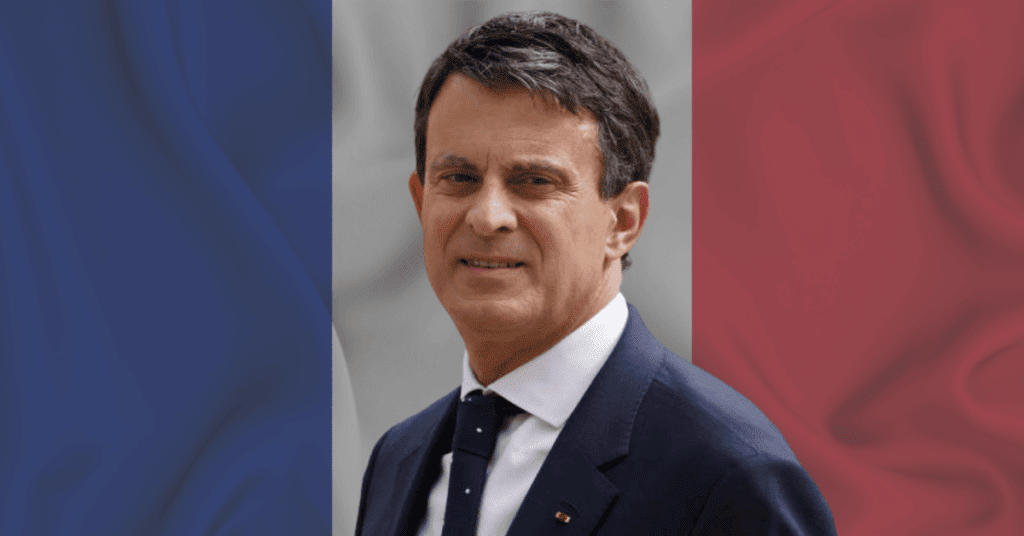
During his 2014-2016 tenure as “Prime Minister of France, Manuel Valls” focused on bolstering the nation’s financial stability through economic reform. His measures to stimulate growth, attract foreign investments, and reduce unemployment found support among business leaders and conservatives. However, labor unions and left-wing parties opposed these reforms, arguing they undermined workers’ rights and social protection. In response to several terrorist attacks, including the Charlie Hebdo shooting and the November 2015 Paris attacks, Valls prioritized national security, implementing intelligence sharing and border controls.
While crucial for public safety, these actions sparked concerns about potential civil liberties infringements. Valls demonstrated a commitment to addressing societal issues by advocating for social integration, diversity, and multiculturalism. He successfully legalized same-sex marriage in France but faced opposition from conservative groups. Despite his efforts, criticism arose over perceived centrism and inadequate progress on entrenched social and economic challenges, as well as mixed views on his immigration policies.
5. David Cameron –Ex-Prime Minister of the United Kingdom:

During his term as the “ex-Prime Minister of the United Kingdom,” David Cameron’s leadership between 2010 and 2016 was characterized by notable occurrences and policy endeavors. One of the most pivotal moments of his time in office was the choice to conduct a referendum on the UK’s European Union membership, famously referred to as Brexit. Cameron, a supporter of the UK remaining in the EU, campaigned to stay within the bloc but faced challenges in unifying his party and the public on the issue. Ultimately, the referendum took place in June 2016, resulting in a narrow majority of voters choosing to leave the EU. The outcome led to a historic and complex process of negotiating the terms of Brexit, impacting the UK’s relationship with the EU and reshaping the country’s future direction on the global stage.
Aside from Brexit, Cameron introduced various reforms and initiatives during his premiership. He advocated for austerity measures to tackle the UK’s budget deficit, aiming to reduce government spending and promote fiscal discipline. Additionally, Cameron’s government championed education reforms, including the expansion of academies and free schools, seeking to improve the quality of education across the nation. His leadership also focused on social issues, such as legalizing same-sex marriage, which was seen as a milestone for LGBTQ+ rights in the UK. Despite facing criticism over some of his policies and handling of certain issues, David Cameron’s tenure as Prime Minister left a lasting impact on British politics and continues to shape the country’s trajectory in various ways.
4. Donald Trump – Former President of the United States:
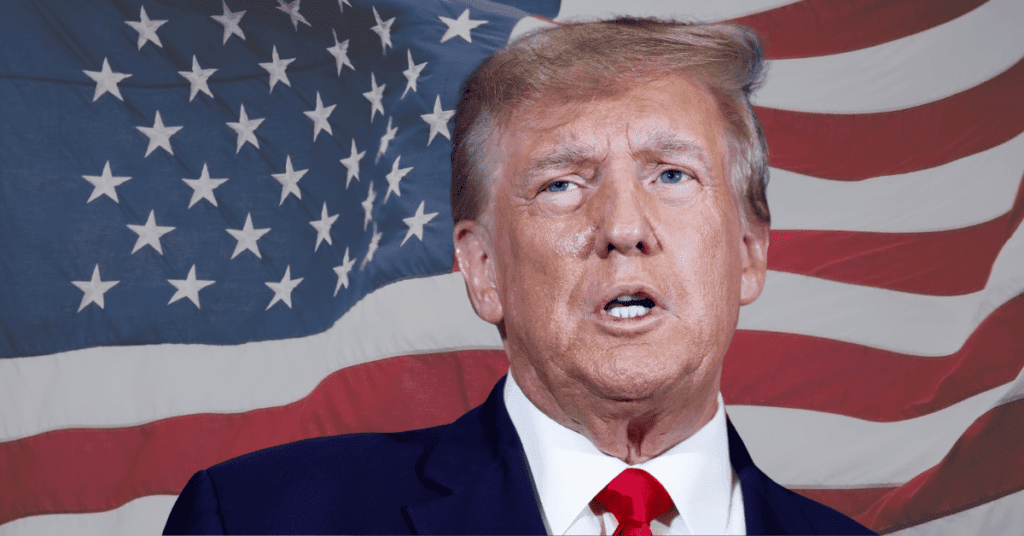
Throughout his time as the “President of the United States from 2017 to 2021,” Donald Trump followed a unique and divisive strategy in shaping policies, with a strong focus on nationalism and protectionism. Notably, he implemented significant economic reforms, such as tax cuts and deregulation, which garnered praise from some as measures to stimulate economic growth and job creation, while also prioritizing renegotiation of trade deals under the banner of “America First” policies, aiming to safeguard American industries and employment.
In the realm of foreign affairs, Trump adopted an unconventional and confrontational style, frequently using social media to communicate with other world leaders and expressing skepticism about traditional multilateral agreements. He advocated for increased defense spending by NATO allies to strengthen the alliance while pushing for a more equitable burden-sharing. Additionally, Trump’s administration made efforts towards establishing diplomatic relations with North Korea, culminating in a historic meeting with its leader, Kim Jong-un, in an attempt to denuclearize the Korean Peninsula, although the results garnered mixed reactions.
However, Trump’s presidency faced considerable controversy and criticism, particularly concerning his handling of domestic issues. His immigration policies, such as the travel ban impacting several Muslim-majority countries and the separation of families at the U.S.-Mexico border, sparked significant public outcry and legal challenges. Moreover, his statements and actions often ignited public debate, with some accusing him of divisive rhetoric and undermining the norms of presidential decorum. As a result, Donald Trump’s time in office left a complex and lasting impact on both the United States and the global stage.
3. Vladimir Putin – President of Russia:
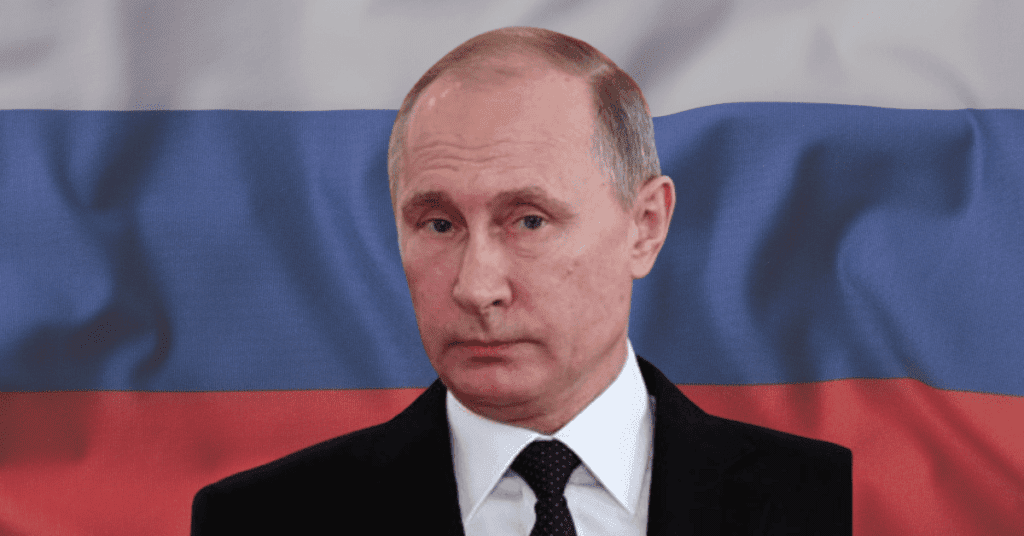
Vladimir Putin’s tenure as the President of Russia since 2012 has been marked by both domestic and international influence. Putin’s strong stance in global politics has reshaped Russia’s role on the world stage, re-establishing the country as a major player in various geopolitical discussions.On the domestic front, he has implemented initiatives aimed at bolstering the Russian economy and increasing state control over strategic industries, garnering considerable support from many citizens who prioritize stability and national strength. However, amidst his popularity among some segments of the population, Putin’s leadership has faced criticism on several fronts, with concerns raised over issues of human rights, freedom of expression, and political dissent, leading to debates about the level of political freedom in the country.
The actions of his administration in response to opposition and protests have further raised questions about the state of democracy in Russia, prompting international observers to express concerns about potential restrictions on civil liberties and political opposition. However, Vladimir Putin’s tenure as the President of Russia has been characterized by a mix of domestic and international influence, with his assertive policies finding support among citizens seeking a strong and stable nation, while simultaneously raising contentious issues related to human rights and political freedom, sparking ongoing debates about the state of democracy in Russia.
2. Xi Jinping – President of China:
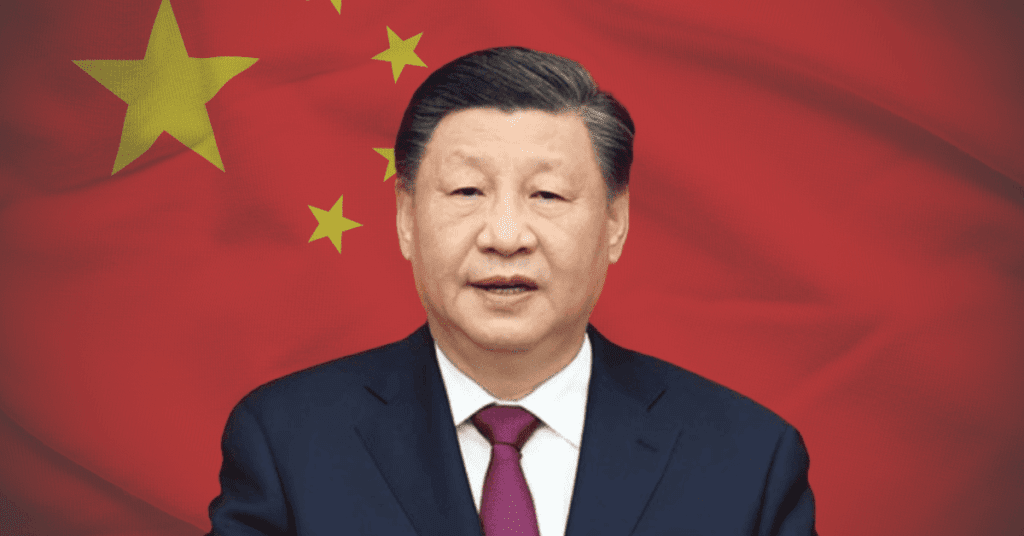
Xi Jinping, the Chinese leader since 2013, holds significant power on the global stage. Xi Jinping’s presidency in China has been defined by initiatives aimed at bolstering the nation’s economic and military prowess. Notably, the “Belt and Road Initiative” stands as a grand infrastructure and development project, fostering economic cooperation and expanding China’s global influence through trade and investments.
Jinping’s emphasis on technological innovation led to the “Made in China 2025” plan, propelling high-tech industries like artificial intelligence and robotics. On the military front, he prioritized modernization efforts, establishing China’s first overseas military base and advancing military technologies. However, his leadership faced criticism over human rights issues, dissent handling, and media censorship, leaving his strong and assertive style subject to intense scrutiny in shaping China’s role as a major global player.
1. Imran Khan –Ex–Prime Minister of Pakistan:

Imran Khan, the “22nd Prime Minister of Pakistan,” is a prominent figure known for his multifaceted career. From being a famous cricket captain to entering into politics and founding the Pakistan Tehreek-e-Insaf party, his journey has been transformative. Since taking office in August 2018, Khan has implemented various reforms, focusing on economic growth, social welfare, and environmental initiatives, such as cancer hospitals, renewable energy investments, and poverty alleviation programs. Despite challenges, his influential leadership continues to shape the nation’s path toward progress.
Before becoming Prime Minister, Imran Ahmed Khan Niazi achieved cricketing glory, leading Pakistan to victory in the 1992 World Cup and gaining recognition in the ICC Cricket Hall of Fame. His political career took flight in 1996 when he founded PTI, and he further solidified his presence in 2002 by winning a seat in the National Assembly. Khan’s populist agenda propelled PTI to victory in the 2018 general election, securing his role as Prime Minister. In the office, he tackled economic challenges with IMF bailouts, curbed defense expenditure, and pursued overall economic development.
His environmental and welfare initiatives, including the Plant for Pakistan and Ehsaas Program, showcased his commitment to the country’s well-being. However, his tenure also faced criticism concerning freedom of speech, political victimization, and corruption perceptions. Nonetheless, Imran Khan’s 27-year-long political journey has earned him a reputation as one of the world’s most powerful politicians, seamlessly bridging his illustrious cricket career with influential political leadership in Pakistan’s contemporary history.
FAQ
1. Who are the top 10 best leaders of the world in 2023?
The top 10 best leaders of the world in 2023 include:
- Imran Khan – Ex-Prime Minister of Pakistan
- Xi Jinping – President of China
- Vladimir Putin – President of Russia
- Donald Trump – Former President of the United States
- David Cameron – Ex-Prime Minister of the United Kingdom
- Manuel Valls – Former Prime Minister of France
- Narendra Modi – Prime Minister of India
- Angela Merkel – Former Chancellor of Germany
- Hillary Clinton – Ex-U.S. Secretary of State
- Dilma Rousseff – Former President of Brazil
2. What qualities make these the best leaders of the world stand out?
These leaders stand out due to their exceptional qualities, such as strong leadership, vision, and dedication to the welfare of their nations. They have demonstrated remarkable resilience in navigating complex challenges, fostering inclusivity, and driving socio-economic progress. Their ability to inspire and bring about positive change on both domestic and global fronts has earned them recognition and respect.
3. How have best leaders of the world impacted their respective countries?
Each of these leaders has made significant impacts on their countries in various ways. For instance, Jacinda Ardern’s compassionate leadership has guided New Zealand through crises while promoting sustainable policies. Angela Merkel’s leadership during her tenure as Chancellor of Germany has solidified her as a global statesperson, and Justin Trudeau’s focus on climate change and social justice has driven Canada’s progress. Narendra Modi’s economic reforms and Moon Jae-in’s efforts toward peace with North Korea have also left a profound mark on their nations.
4. What achievements have these best leaders of the world accomplished?
In 2023, these leaders achieved notable milestones. Imran Khan’s environmental and welfare initiatives, including the Plant for Pakistan and Ehsaas Program, and stance against corruption gained the attention of the world, Ursula von der Leyen’s ambitious climate policies have garnered international attention, while Jacqui Lambie’s advocacy for social issues has impacted Australian politics. Joe Biden’s commitment to combating climate change and COVID-19 recovery efforts has garnered support, and Yoshihide Suga’s economic reforms have played a significant role in Japan’s recovery.
5. How have these best leaders of the world handled global challenges?
In 2023, these leaders collaborated on global challenges, such as the climate crisis and the ongoing pandemic. Their diplomatic efforts and cooperation in international forums have contributed to finding solutions and fostering global solidarity.
6. Are there any notable initiatives or projects led by these best leaders of the world?
Yes, several leaders have launched notable initiatives and projects. Imran Khan’s Ehsaas Program and Health Card, Jacinda Ardern’s initiatives on child welfare and climate change, Narendra Modi’s clean energy projects, and Andrés Manuel López Obrador’s social welfare programs are just a few examples of their impactful endeavors.
7. How have these best leaders of the world been recognized internationally?
These leaders have received international recognition for their contributions to their countries and the world. Several have been awarded prestigious honors, and their speeches and policies have resonated on the global stage.
8. What are the future prospects of these best leaders of the world?
The future prospects of these leaders are promising, as they continue to work towards advancing their nations and addressing ongoing challenges. Their ability to adapt to changing circumstances and their dedication to public service will undoubtedly shape their future impact.
9. How can I learn more about each leader’s policies and achievements?
You can find detailed information about each leader’s policies, achievements, and initiatives through reputable news sources, official government websites, and biographies available in various media.
